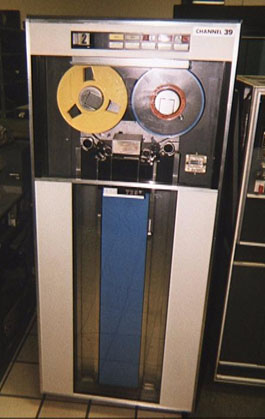The predictive power of computers
 I have always been interested in the depiction of computers in popular fiction. One early computer meme represented the percentage crunching computer/robot that would helpfully tell the protagonists the percentage rate of survival for X situation ("You have a 2% chance to survive that jump").
I have always been interested in the depiction of computers in popular fiction. One early computer meme represented the percentage crunching computer/robot that would helpfully tell the protagonists the percentage rate of survival for X situation ("You have a 2% chance to survive that jump").
While computer predictions are not as reliable as their fictional counterparts, they are still used in complex simulations involving anything from climate change to traffic flow. I have been thinking about this for several reasons, including research into networks and because of the latest release of iTunes. The system comes with a recommendation system called Genius. You select a song, and Genius will generate a playlist that "matches" it. I am not sure about the parameters used to generate the lists, but I tried seeding lists with Pat Benatar's "Love is a Battlefield" and New Order's "Blue Monday", and I was quite impressed with the resulting lists. However, trying anything other than Anglo Saxon-centric pop and rock will slice Genius' IQ in half. I tried "Bongo Bong" by Manu Chao, and even several Soda Stereo songs, and all I got was a message claiming that Genius could not generate a list. I was also underwhelmed by the Classical music lists. Apparently, I am not the only person who thinks that Genius is not particularly clever (a hint to Apple: do not name any system with synonyms for intelligence, it will only generate derision from the blogosphere). If you want to try to go into Microsoft world and purchase a Zune, the recommendation system appears to be rather good (I do not know anyone who would willingly buy a Zune though).
Recommendation systems are not new. Amazon's recommendation algorithm has been with us for years, and it really works. It seems like every week there is talk of a new startup that promises to bring social intelligent systems to make our lives easier by letting our friends recommend stuff to us; the Guardian's Technology podcast seems to be almost entirely about social recommendations lately. Similarly, talk about the semantic web and intelligent systems has been around for ages.
I remain sceptical about many of these predictive services, particularly about social applications. While I find it interesting that I share musical tastes with people in my Facebook friends list, I will not make many decisions based on that. I am also sort of troubled about the fact that our tastes can be so easily predicted. I like fooling the system from time to time! Nevertheless, with the advent of the petabyte age, some pictures are starting to emerge. It seems like we make decisions in a more predictive manner than we previously thought. Serendipity and inventiveness are actually rare, and most of us are remarkably simple creatures, responding to the world in a predictable manner.
Can we code these deterministic responses into law? Although I would like to answer no, my logical brain says yes. But what do I know, I have some shameful songs in my iPod.

 del.icio.us
del.icio.us




1 comment:
I've actually found the system to be decent so far, although I'd agree its far from "Genius" - maybe "Quite Clever". Its certainly better than Party Shuffle anyway. Would I be right in saying it will improve over time?
Post a Comment